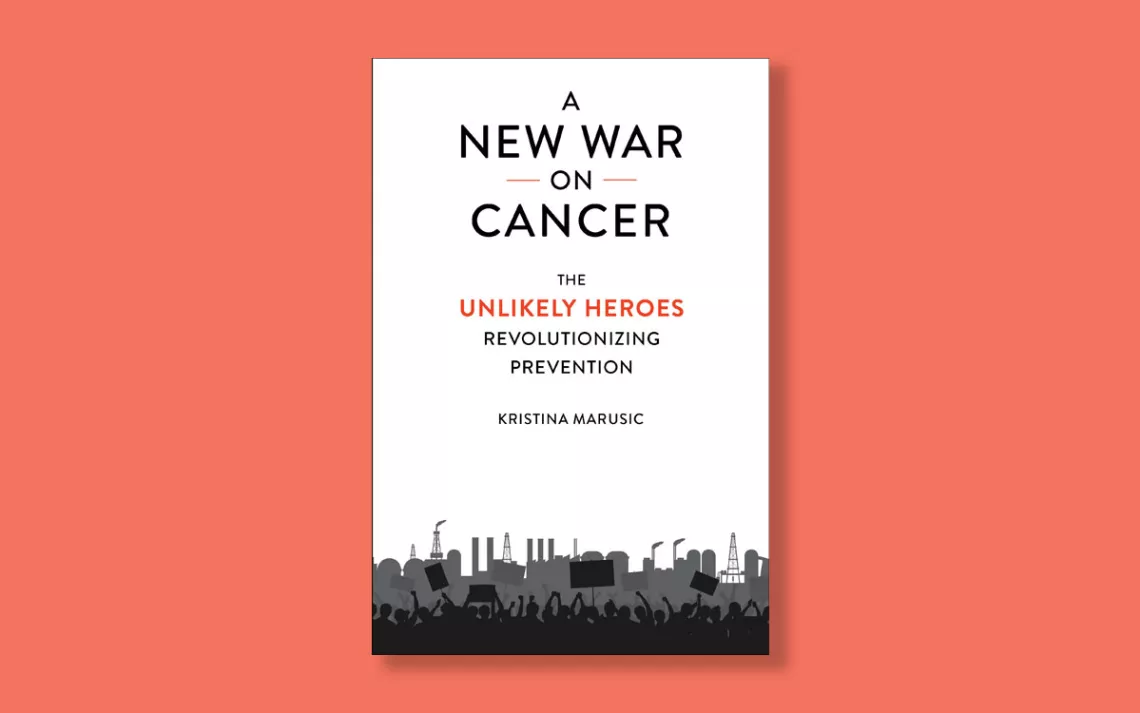Our Chemical Romance Has Real Consequences for Our Health
Kristina Marusic paints a grim picture of ubiquitous chemicals and their health impacts

Dangerous chemicals have infiltrated nearly every aspect of our lives. They're in everything from linens and workout clothes to popcorn bags and children's car seats. The chemicals that make these products more durable have been linked to serious health problems, such as cancer, obesity, and compromised immune systems. Yet they are so pervasive, it's easy to dismiss them as something we just have to live with.
We don't, and we shouldn't have to, according to the researchers and health advocates whose inspirational stories anchor Kristina Marusic's A New War on Cancer: The Unlikely Heroes Revolutionizing Prevention (Island Press, 2023). This book is a must-read for anyone who cares about the right to clean, healthy living.
Berry Breen's struggle with breast cancer is a pivot point for Marusic's central thesis. "It's possible that if she had never smoked cigarettes or drunk alcohol, her breast cancer would never have developed," Marusic writes. "It's also possible that she never would have gotten cancer if she had grown up in a place with fewer carcinogens in the air, or if she had never eaten food treated with pesticides, or if she had lived in a part of the world where phthalates and parabens were banned in lipstick and lotion." We're also introduced to frontline researchers working every day on prevention. Laurel Schaider, for example, led a groundbreaking study for the Silent Spring Institute revealing that people who eat fast food have higher levels of PFAS chemicals in their bodies because grease-proof food wrapping is sprayed with the stuff.
Marusic's story is often told through grim statistics, like the 35 percent uptick in child leukemia rates and the fact that Black women are exposed to more chemicals from personal care products than are women in any other demographic. She dismisses "the personal responsibility myth" and lays out a blueprint for systemic change, including not just civic engagement for stricter regulations but also campaign finance reform.
 The Magazine of The Sierra Club
The Magazine of The Sierra Club



